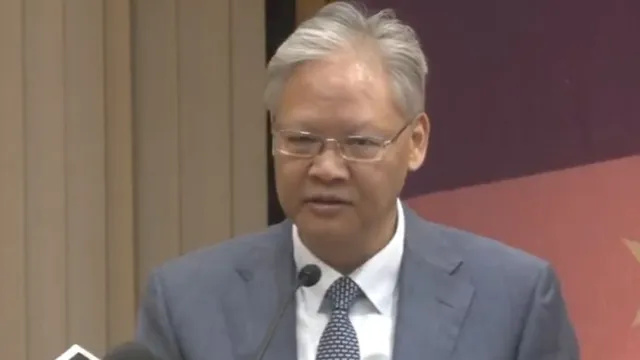- By Shivangi Sharma
- Thu, 21 Aug 2025 08:49 PM (IST)
- Source:JND
China has openly backed New Delhi against US trade restrictions. China’s ambassador to India, Xu Feihong, condemned Washington’s decision to impose tariffs of up to 50 per cent on Indian goods, calling it an act of “bullying” that threatens global trade stability. Stressing that “silence only emboldens the bully,” Xu declared that China would “firmly stand with India” against unilateral trade.
Feihong also extended an open invitation for greater trade cooperation, stating that Beijing welcomes all Indian commodities into the Chinese market.
#WATCH | China's ambassador to India, Xu Feihong says, "...US has imposed tariffs of up to 50% on India and even threatened for more. China firmly opposes it. Silence only emboldens the bully. China will firmly stand with India ." pic.twitter.com/0iMehF2K6e
— ANI (@ANI) August 21, 2025
Xu Feihong, said that both nations are discussing the resumption of direct flights and stressed Beijing’s willingness to deepen friendly exchanges across sectors. He added that China hopes people of both countries can visit each other “like relatives,” highlighting the importance of stronger people-to-people ties.
In a bid to deepen economic ties, Xu extended an open invitation for Indian exports. “We welcome all Indian commodities to enter the Chinese market,” he said, signalling China’s willingness to address long-standing trade imbalances. The ambassador noted that discussions were underway on resuming direct flights between the two countries and emphasised people-to-people connections, expressing hope that Indians and Chinese could visit each other “like relatives.”
He also highlighted recent developments that indicate improving relations, including the resumption of Indian pilgrimages to sacred Chinese sites and India restarting tourist visa issuance for Chinese nationals.
US Tariffs Spark Tensions
The sharp remarks came after US President Donald Trump earlier this month imposed an additional 25 per cent tariff on Indian goods, citing New Delhi’s continued imports of Russian oil and accusing India of profiteering. The move raises duties on certain Indian exports to as high as 50 per cent, among the steepest levied on any US trading partner.
Xu denounced Washington’s approach, saying, “The US has long benefited from free trade but now uses tariffs as bargaining chips.” He underscored that such measures could disrupt regional and global economic stability.
China Pushes Unity Over Division
Positioning India and China as “double engines of economic growth,” Xu argued that the two Asian giants must prioritise cooperation. “For two neighbouring countries of such size, unity and cooperation are the only way to achieve common development,” he said.
Calling the current global situation “the most profound evolution since World War II,” Xu urged both nations to lead efforts toward a multipolar world. “China and India are important neighbours, major developing countries. Both countries are at the critical stage of national rejuvenation,” he added.
ALSO READ: Gen Z, Gen X, Or Gen Y: Which Generation Witnesses The Most Drastic Tech Boom? Experts Weigh In
The Ministry of External Affairs (MEA) confirmed that China raised the Taiwan issue during the talks. India reiterated its consistent position, clarifying that while it maintains economic, cultural, and technological ties with Taipei, its stance remains unchanged. India last officially endorsed the “One-China” policy in 2011, but China continues to press New Delhi to reaffirm it.

